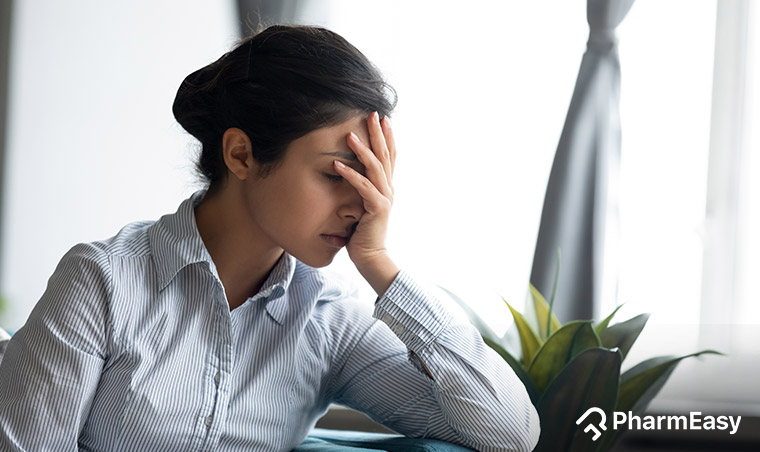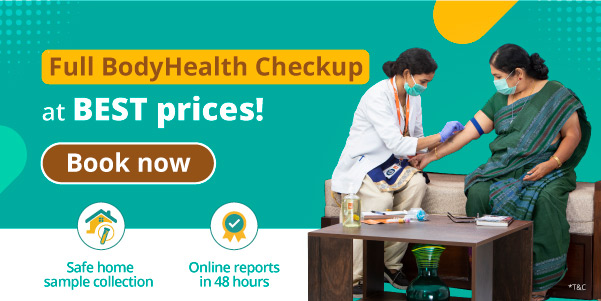What Should You Do If You Develop COVID-19 Symptoms?
By Priya Mewada +2 more

Get,

to manage your symptom
Get your,


4 Cr+ families
benefitted

OTP sent to 9988776655



You’ve successfully subscribed to receive
doctor-approved tips on
Whatsapp

Get ready to feel your best.

Hi There,
Download the PharmEasy App now!!


Register to Avail the Offer
Send OTPBy continuing, you agree with our Privacy Policy and Terms and Conditions

Hi There,
Sign up on PharmEasy now!!
Trusted by 4 crore+ families

OTP sent to 9988776655



You have unlocked 25% off on medicines




Code: NU25
By Priya Mewada +2 more
Just when we thought the worst part of the pandemic was over,the second coronavirus wave hit us. Every day lakhs of COVID cases in India are being reported. The new COVID-19 strains that have triggered the second wave are very infectious and one infected person can spread the disease to many other individuals.

So, what should be your course of action if you think you are displaying signs of COVID?
Table of Contents
The usual symptoms of coronavirus include fever and sore throat, cough, weakness, loss of smell, taste. You may be surprised to know that the new COVID-19 strain triggers certain new symptoms in addition to the usual ones. Be mindful regarding-
Sometimes these symptoms may not show up all together and you may experience just one of these symptoms. If so, immediately isolate yourself in a separate well-ventilated room. Contact your doctor immediately. Book an RT-PCR test. The RT-PCR test is recommended for anyone who thinks he/she may have contracted COVID-19. This is a swab test and mucous is collected from your nasal passage or your throat with a cotton bud. The results are usually available between 48-72 hours. If you are unable to book the RT-PCR test, you can opt for the Rapid Antigen test. If your Rapid antigen test is positive, then no need to do the RT-PCR as it implies the presence of COVID.
If you witness any of the symptoms of COVID, don’t self-diagnose. Since the new strains of COVID are accompanied by new symptoms, it is very difficult to zero in on the real cause of the symptoms. Without any delay have a word with your doctor who may recommend an RT-PCR test.
If you are unable to book a slot for the RT-PCR, you may opt for the rapid antigen test. Irrespective of whether the report is positive or negative, inform your doctor who will then suggest the next course of action.
A positive RT-PCR result means you have COVID-19. There’s no need to be anxious. There are ways to deal with a COVID infection. The majority of COVID cases are mild and are treated at home.
First things first, you need to visit or contact your doctor. Ensure you are wearing a mask. Your doctor will analyse your condition based on your age, fitness level, comorbidities, other diagnosed illnesses, oxygen saturation level or whether you are pregnant or are breastfeeding. Young people with no comorbidities, no breathing issues and normal blood oxygen saturation levels shall be advised of treatment at home. Here’s what you need to do –
If you got tested because you showed COVID-19 symptoms and the test was negative, speak with your doctor. You might need to undergo another test. Improper administration of the test can produce a false-negative result.
Another reason why you might have to get tested again is that sometimes if you opt for the test very soon after exposure, the result can be negative. The symptoms and the virus become detectable 6-14 days after exposure.
However, your doctor might say that your symptoms are triggered by a common cold or the flu, in which case, you needn’t undergo the COVID-19 test again.
No, only COVID-19 patients with moderate or severe infection require High-Resolution Computed Tomography of the chest. This detects if the person’s infection has progressed to pneumonia.
Health checkup is a very crucial part of our life. So, don’t miss out on it.

Disclaimer: The information provided here is for educational/awareness purposes only and is not intended to be a substitute for medical treatment by a healthcare professional and should not be relied upon to diagnose or treat any medical condition. The reader should consult a registered medical practitioner to determine the appropriateness of the information and before consuming any medication. PharmEasy does not provide any guarantee or warranty (express or implied) regarding the accuracy, adequacy, completeness, legality, reliability or usefulness of the information; and disclaims any liability arising thereof.
Links and product recommendations in the information provided here are advertisements of third-party products available on the website. PharmEasy does not make any representation on the accuracy or suitability of such products/services. Advertisements do not influence the editorial decisions or content. The information in this blog is subject to change without notice. The authors and administrators reserve the right to modify, add, or remove content without notification. It is your responsibility to review this disclaimer regularly for any changes.

Leave your comment...
Comments